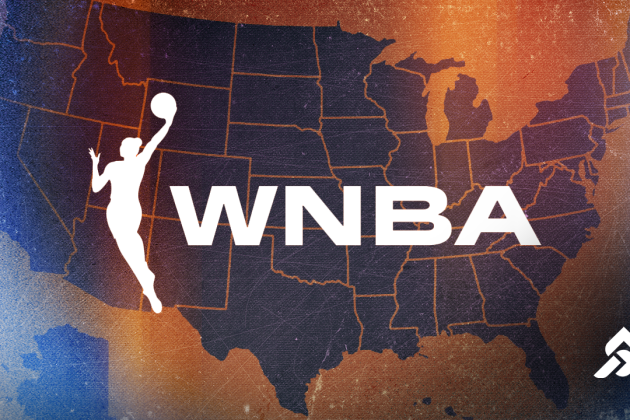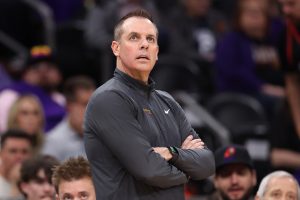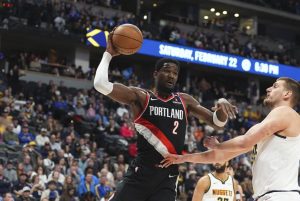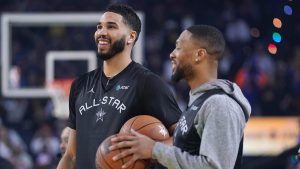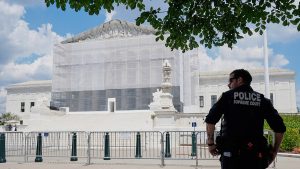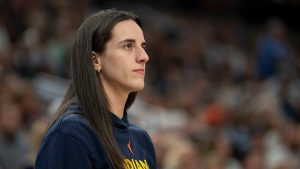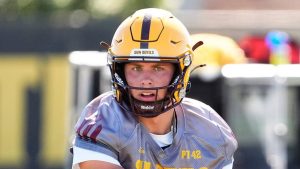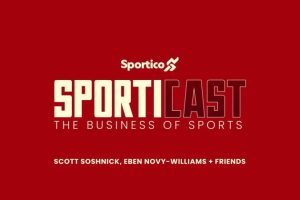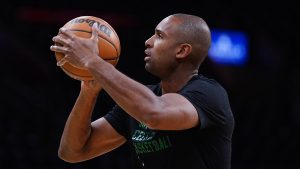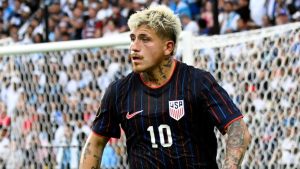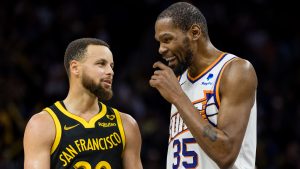The group behind Austin’s WNBA expansion bid, which came up short in the latest round, believes its proposal would have been stronger with the backing of an NBA team.
After receiving 11 bids, the WNBA chose Cleveland, Detroit and Philadelphia as its next three expansion teams, with all three teams backed by owners of the NBA teams in those cities. The owners of the three WNBA expansion teams preceding these—the Golden State Valkyries, the Toronto Tempo and Portland—also have NBA ties. Last September, Allen & Co. was hired by the league to lead the expansion process.
“If there are NBA owners in the back room saying, ‘Hey, when am I getting my team?’ I think Adam [Silver] is probably listening,” Austin expansion backer Fran Harris, an entrepreneur and former WNBA player, told Sportico in a phone interview. “It’s hard to tell a billionaire with a thriving NBA team and operation that they can’t run it back with a W team. It’s hard to look at them and just go, ‘I don’t think you’re right.’”
In addition to Harris, Austin’s proposal was supported by NBA superstar Kevin Durant (who starred one year at the University of Texas), former Milwaukee Bucks owner Marc Lasry and PEAK6 founder Jenny Just. All big names, but none with active control of an NBA team.
Some of the regions that came up short in the expansion bidding process were specifically told that having NBA ties wasn’t a firm prerequisite for getting a team, according to two sources who spoke on the condition of anonymity because the discussions were private.
Of the eight rejected bids, only two (Houston and Charlotte, N.C.) were backed by NBA team owners. The other six (St. Louis; Kansas City, Mo.; Austin, Texas; Nashville, Tenn.; Miami; and Denver) sent proposals without support from NBA ownership. While Miami and Denver have NBA teams, the ownership was not involved in the WNBA bid.
From the moment potential expansion clubs backed by NBA groups began to raise their hands, Harris believed those cities would be Austin’s biggest competition. She said existing NBA markets and their ownership groups brought “a level of credibility because they’re in the family.” Still, she didn’t believe that independent cities didn’t have any shot, saying her group’s bid was competitive with the winners even as requirements began to change as more bidders threw their hat in the ring.
“I always knew that if we didn’t get it, that it would be an NBA operator,” Harris said, noting that Austin’s biggest competition would be bids with NBA ownership support. “While there’s an anticipatory gloom about that, there’s also a freedom in the way I felt about it; ‘OK, at least I wasn’t beat out by another independent city.’”
Not already being in the NBA’s “family” caught the attention of least one bidder: Bill Haslam, the former governor of Tennessee (and brother of Jimmy Haslam, owner of the Cleveland Browns), who led the Nashville effort. His group included former athletes Candace Parker and Peyton Manning, who both starred at the University of Tennessee before embarking on their pro careers.
In a statement, Haslam said that despite Nashville putting its best foot forward in its bid, “we understand and accept the WNBA’s decision today in awarding franchises to NBA ownership groups.” Haslam also said his group remains committed “to Nashville and women’s sports fans.” Separately from the WNBA bid, Haslam is set to become the new majority owner of the NHL’s Nashville Predators this month.
During Monday’s press conference, commissioner Cathy Engelbert noted that the Toronto Tempo and the Portland team, both of which will enter the league in 2026, are not owned by NBA franchises in those cities. But Tempo owner Kilmer Sports Ventures is led by billionaire businessman Larry Tanenbaum, who is the Raptors’ governor and chairman of the NBA Board of Governors. Portland is owned by the Bhathal family via RAJ Sports, who have a stake in the Sacramento Kings.
The Golden State Valkyries, which began play this season, are a sibling franchise of the Warriors.
The NBA owns 42% of the WNBA, while WNBA team owners have 42% equity and the 2022 investment consortium holds 16%.
Last year, Harris said that the league was okay with smaller or mid-sized arenas with up to 7,000 seats. Yet when viewership and attendance across the W exploded—riding the Caitlin Clark wave— the math changed, and bidding arenas needed to have at least 10,000 seats.
The Austin bidding group’s target venue was the Moody Center, the $375 million arena built by Oak View Group on the University of Texas campus. Home to UT’s men’s and women’s basketball team’s, the venue hosts close to 11,000 for basketball with a wider capacity of 16,233 for concerts.
Harris also said the league wanted the bidding cities to have histories of supporting women’s sports, in particular women’s basketball. Among the four Austin investors, Harris has the most direct involvement with the WNBA. In addition to being a TV commentator for the Dallas Wings, she won a WNBA title with the defunct Houston Comets in 1997 and playing a second season with the Utah Starzz (now Las Vegas Aces).
Yet she noted that two of the three teams announced in this round—Cleveland and Detroit—already had a shot at hosting an WNBA club before their teams slipped away.
A founding WNBA franchise, the Cleveland Rockers folded in 2003 when the league was unable to secure new ownership after Cavaliers owner Gordon Gund no longer wished to run the franchise. When the estate of former Pistons and Shock owner Bill Davidson liquidated his assets after his death in 2009, the Shock were sold to a group in Tulsa, Okla., where the team would spend few seasons. The Shock relocated once more—this time to Dallas and becoming the Wings in 2016.
“The whole thing is when it gets hard, are you going to stay in this relationship? Let’s run it back from the history,” Harris said. “Yes, most of them defected. Most of them left. Yes, stuff got hard, and they were like, ‘Deuces!’”
So, what’s next for the Austin group? Harris said that it remains committed to bringing a franchise to the city. “I do believe Austin deserves a spot. So [that’s] my press answer, but it’s also the truth. We’ve let the WNBA and the NBA know that.”
“I see that there are openings. I don’t know if those are true openings for independent cities or if those are just openings for NBA cities, but we remain interested.”
(With assistance from Scott Soshnick and Eben Novy-Williams)
Sign up for Sportico’s Newsletter. For the latest news, follow us on Facebook, Twitter, and Instagram.
The group behind Austin’s WNBA expansion bid, which came up short in the latest round, believes its proposal would have been stronger with the backing of an NBA team.
After receiving 11 bids, the WNBA chose Cleveland, Detroit and Philadelphia as its next three expansion teams, with all three teams backed by owners of the NBA teams in those cities. The owners of the three WNBA expansion teams preceding these—the Golden State Valkyries, the Toronto Tempo and Portland—also have NBA ties. Last September, Allen & Co. was hired by the league to lead the expansion process.
“If there are NBA owners in the back room saying, ‘Hey, when am I getting my team?’ I think Adam [Silver] is probably listening,” Austin expansion backer Fran Harris, an entrepreneur and former WNBA player, told Sportico in a phone interview. “It’s hard to tell a billionaire with a thriving NBA team and operation that they can’t run it back with a W team. It’s hard to look at them and just go, ‘I don’t think you’re right.’”
In addition to Harris, Austin’s proposal was supported by NBA superstar Kevin Durant (who starred one year at the University of Texas), former Milwaukee Bucks owner Marc Lasry and PEAK6 founder Jenny Just. All big names, but none with active control of an NBA team.
Some of the regions that came up short in the expansion bidding process were specifically told that having NBA ties wasn’t a firm prerequisite for getting a team, according to two sources who spoke on the condition of anonymity because the discussions were private.
Of the eight rejected bids, only two (Houston and Charlotte, N.C.) were backed by NBA team owners. The other six (St. Louis; Kansas City, Mo.; Austin, Texas; Nashville, Tenn.; Miami; and Denver) sent proposals without support from NBA ownership. While Miami and Denver have NBA teams, the ownership was not involved in the WNBA bid.
From the moment potential expansion clubs backed by NBA groups began to raise their hands, Harris believed those cities would be Austin’s biggest competition. She said existing NBA markets and their ownership groups brought “a level of credibility because they’re in the family.” Still, she didn’t believe that independent cities didn’t have any shot, saying her group’s bid was competitive with the winners even as requirements began to change as more bidders threw their hat in the ring.
“I always knew that if we didn’t get it, that it would be an NBA operator,” Harris said, noting that Austin’s biggest competition would be bids with NBA ownership support. “While there’s an anticipatory gloom about that, there’s also a freedom in the way I felt about it; ‘OK, at least I wasn’t beat out by another independent city.’”
Not already being in the NBA’s “family” caught the attention of least one bidder: Bill Haslam, the former governor of Tennessee (and brother of Jimmy Haslam, owner of the Cleveland Browns), who led the Nashville effort. His group included former athletes Candace Parker and Peyton Manning, who both starred at the University of Tennessee before embarking on their pro careers.
In a statement, Haslam said that despite Nashville putting its best foot forward in its bid, “we understand and accept the WNBA’s decision today in awarding franchises to NBA ownership groups.” Haslam also said his group remains committed “to Nashville and women’s sports fans.” Separately from the WNBA bid, Haslam is set to become the new majority owner of the NHL’s Nashville Predators this month.
During Monday’s press conference, commissioner Cathy Engelbert noted that the Toronto Tempo and the Portland team, both of which will enter the league in 2026, are not owned by NBA franchises in those cities. But Tempo owner Kilmer Sports Ventures is led by billionaire businessman Larry Tanenbaum, who is the Raptors’ governor and chairman of the NBA Board of Governors. Portland is owned by the Bhathal family via RAJ Sports, who have a stake in the Sacramento Kings.
The Golden State Valkyries, which began play this season, are a sibling franchise of the Warriors.
The NBA owns 42% of the WNBA, while WNBA team owners have 42% equity and the 2022 investment consortium holds 16%.
Last year, Harris said that the league was okay with smaller or mid-sized arenas with up to 7,000 seats. Yet when viewership and attendance across the W exploded—riding the Caitlin Clark wave— the math changed, and bidding arenas needed to have at least 10,000 seats.
The Austin bidding group’s target venue was the Moody Center, the $375 million arena built by Oak View Group on the University of Texas campus. Home to UT’s men’s and women’s basketball team’s, the venue hosts close to 11,000 for basketball with a wider capacity of 16,233 for concerts.
Harris also said the league wanted the bidding cities to have histories of supporting women’s sports, in particular women’s basketball. Among the four Austin investors, Harris has the most direct involvement with the WNBA. In addition to being a TV commentator for the Dallas Wings, she won a WNBA title with the defunct Houston Comets in 1997 and playing a second season with the Utah Starzz (now Las Vegas Aces).
Yet she noted that two of the three teams announced in this round—Cleveland and Detroit—already had a shot at hosting an WNBA club before their teams slipped away.
A founding WNBA franchise, the Cleveland Rockers folded in 2003 when the league was unable to secure new ownership after Cavaliers owner Gordon Gund no longer wished to run the franchise. When the estate of former Pistons and Shock owner Bill Davidson liquidated his assets after his death in 2009, the Shock were sold to a group in Tulsa, Okla., where the team would spend few seasons. The Shock relocated once more—this time to Dallas and becoming the Wings in 2016.
“The whole thing is when it gets hard, are you going to stay in this relationship? Let’s run it back from the history,” Harris said. “Yes, most of them defected. Most of them left. Yes, stuff got hard, and they were like, ‘Deuces!’”
So, what’s next for the Austin group? Harris said that it remains committed to bringing a franchise to the city. “I do believe Austin deserves a spot. So [that’s] my press answer, but it’s also the truth. We’ve let the WNBA and the NBA know that.”
“I see that there are openings. I don’t know if those are true openings for independent cities or if those are just openings for NBA cities, but we remain interested.”
(With assistance from Scott Soshnick and Eben Novy-Williams)

